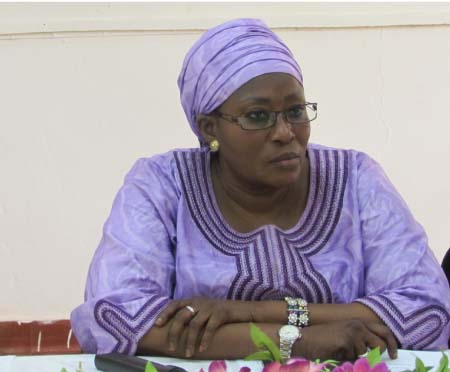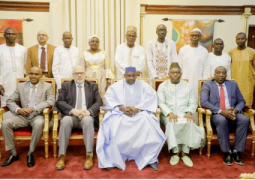
Declaring the conference opened, Fatou Lamin Faye, Minister for Basic and Secondary Education (MoBSE), said it was in 1987 when the first national conference on education was held in The Gambia, the characteristics of which were described by many as highly consultative and participatory.
She said the outcome of the process was considered to have reflected in the main policy what the Gambians wanted the education sector to do for them, adding that this was brought about in the 1988- 2003 education policy development.
Since then education policy development in The Gambia has followed a similar trend, and at the same time broadening and deepening the participation space, she said.
The MoBSE Minister noted that during the World Education Forum in Dakar, while many developing countries had very little to show in terms of progress made since Jomtien, The Gambia had a lot of positive stories to share, especially in the area of access to education and gross enrolment ratios which reached 75 per cent in 2000 from a staggering 59 per cent in 1990.
“The Gambia was more inclined to the second option and, consequently, as we prepared the education policy 2004 to 2015, deliberate efforts were made to prioritise quality without necessarily losing the gains already registered in the area of access to education,” Minister Faye said.
After 15 yearsof policy implementation and constant monitoring of the 2004 to 2015 education policy, which was also revised in 2011, she was happy to report that even though there was room for improvement in the area of quality, “significant gains have already been registered” as they continue to observe annually in the students’ results at the National Assessments Tests (NAT) as well as the Gambia Basic Education Certificate Examinations (GABECE) and the West African Senior Secondary Certificate Examinations (WASSCE).
In his statement on the occasion, Dr Aboubacarr Senghore, Minister for Higher Education, Research, Science and Technology (MoHERST), reassured all stakeholders that his ministry would continue to employ effective strategies in education service delivery.
His ministry would also work relentlessly to further strengthen the relationship between the two ministries to enhance the realisation of their short, medium and long-term goals.
He underscored the need for the ministries to continue to cooperate and collaborate in most spheres of their activities which are mutually relevant to the two ministries.
“This collaboration is already ongoing as exemplified by the ministry of Basic and Secondary Education continuing to fund the teacher training programme at the PTC and HTC levels conducted by the Gambia College School of Education,” he said.
The joint participation of the two ministries in national surveys such as the Country Status Report (CSR) is also another example, and had yielded positive results, he added.
The UNICEF deputy representative, Rupert Leighton, in his remarks, said the local education group was proud to report that its partnership with the education sector had paid significant dividends through leveraging millions of dollars from the Fast Track Initiative (FTI) now called the Global Partnership for Education (GPE).
He said the partnership also encouraged the Government of The Gambia to progressively increase the national budget allocation to the education sector, to reach and even surpass the GPE target of 20 per cent.
Through these investments, he added, more than 90 per cent of lower basic school teachers are now qualified, and the target for pupil- textbook ratio (1to1) was reached and “overcrowded classrooms are minimal”.
Read Other Articles In Article (Archive)
NGOAIDs convenes advocacy forum on HIV/Aids
Dec 19, 2011, 1:19 PM
Religious Variety: The case of convergence
May 27, 2011, 2:32 PM


